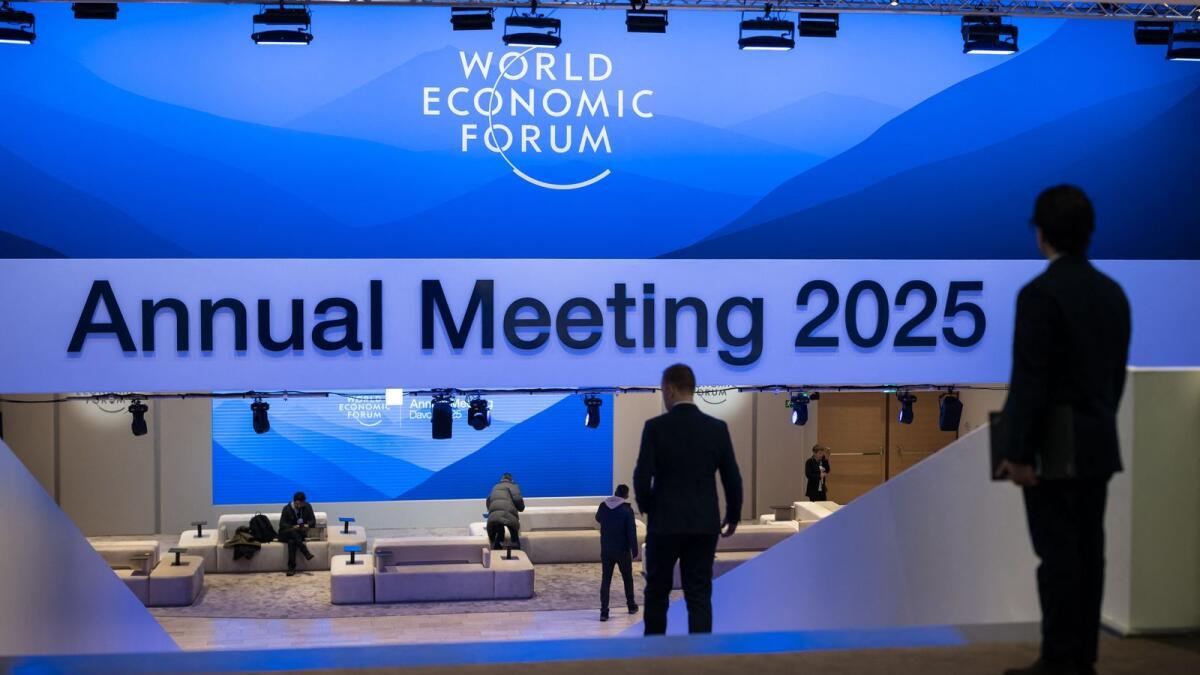
WEF: The Spotlight Is On War, Trump, AI
The 55th annual gathering of the world's elite taking place from 20th to 24th January kicked off as participants expect to have insightful and productive conversations on reviving and reimagining growth in order to build stronger and more resilient economies.
Under the banner "Collaboration for the Intelligent Age," the summit is carefully orchestrated around five key themes: rebuilding trust, reimagining growth, investing in people, safeguarding the planet, and reflecting on industries in this new, intelligent era.
A high-level delegation from the UAE, led by Sheikha Latifa bint Mohammed bin Rashid Al Maktoum, Chairperson of Dubai Culture and Arts Authority (Dubai Culture), comprises more than 100 distinguished leaders from government entities and the private sector.
Key themes for the UAE's participation include showcasing the nation's economic growth, expanding foreign trade, and advancing clean and renewable energy through landmark initiatives and mega-projects. Additionally, the UAE will emphasise its leadership in healthcare transformation, digitalisation, artificial intelligence, and other crucial sectors. The UAE's participation in the forum, held under the theme "Collaboration for the Intelligent Age," aligns with the forum's objectives and agenda. This year's World Economic Forum focuses on critical discussions around bridging gaps that hinder global development efforts, promoting sustainable growth, and leveraging advanced technologies to create transformative solutions that support development.
Artificial Intelligence has cast a large shadow over the event as world leaders grapple with its transformative impact on jobs, economies, and societies amid hopes of stable economic growth.
In 2025 and next year, global growth is projected to remain at a steady 3.3 per cent, according to the latest World Economic Outlook from the International Monetary Fund (IMF). That is 0.4 percentage points below the historical average over the two decades from 2000-2019.
Inflation is also expected to drop to 4.2 per cent this year and 3.5 per cent in 2026, allowing for a further normalization of monetary policy from central banks. The IMF projection chimes with WEF's latest Chief Economists Outlook, which finds that expectations for global growth are muted overall but subject to significant regional divergence. The US appears poised for a short-term boost but the outlook for the year ahead remains less optimistic for other major parts of the global economy, including Europe and China.
The WEF's Future of Jobs Report 2025 finds that AI is fundamentally reshaping global labour markets, both creating opportunities and posing profound challenges.
Data gathered from more than 1,000 companies shows that the skills gap continues to be the most significant barrier to business transformation. Nearly 40 per cent of skills required on the job are set to change and 63 per cent of employers already cite it as the key barrier they face.
The biggest growth in demand will be for technology skills in AI, big data, and cybersecurity, but human skills, such as creative thinking, resilience, flexibility and agility, will remain critical.
“A combination of both skill types will be increasingly crucial in a fast-shifting job market,” the report finds. Human-focused jobs, like frontline roles and in essential sectors like care and education, are set for the highest job growth by 2030. At the same time, advances in AI and renewable energy are reshaping the market, driving an increase in demand for specialist roles while driving a decline for others, such as graphic designers.
A second report released by the WEF, the Global Risks Report 2025, as well as the AI Radar report released by Boston Consulting Group (BCG), find that AI will play a major role in addressing global economic, technological, and workforce transitions this year.
There are several bright spots in the WEF jobs report. Globally, only 7.0 per cent of executives anticipate a reduction in headcount due to AI automation. However, nearly 40 per cent of required job skills are expected to change by 2030. The report highlights that reskilling and upskilling efforts are falling short, with fewer than one-third of companies having upskilled even 25 per cent of their workforce.

Legal Disclaimer:
MENAFN provides the
information “as is” without warranty of any kind. We do not accept
any responsibility or liability for the accuracy, content, images,
videos, licenses, completeness, legality, or reliability of the information
contained in this article. If you have any complaints or copyright
issues related to this article, kindly contact the provider above.


















Comments
No comment